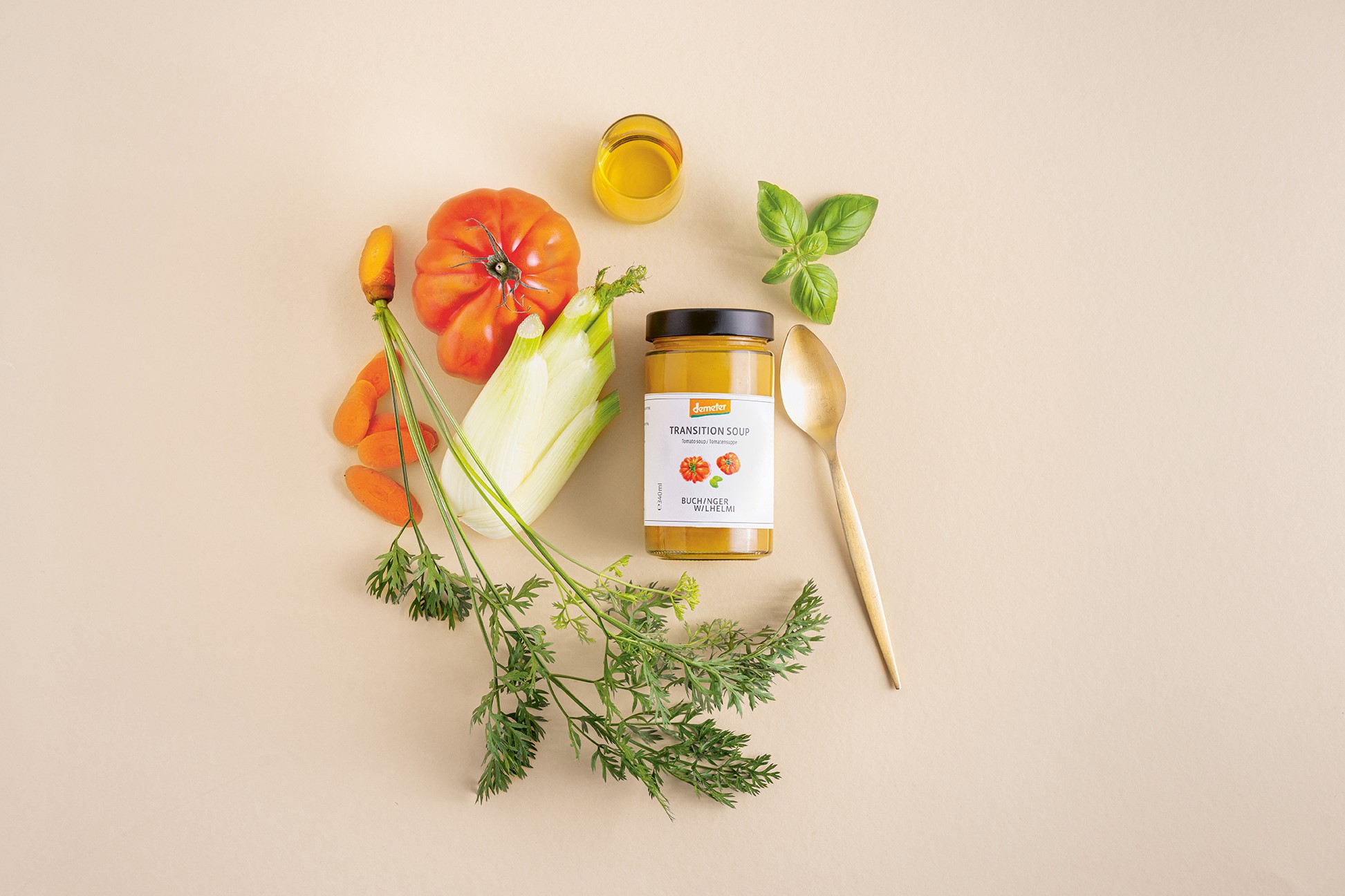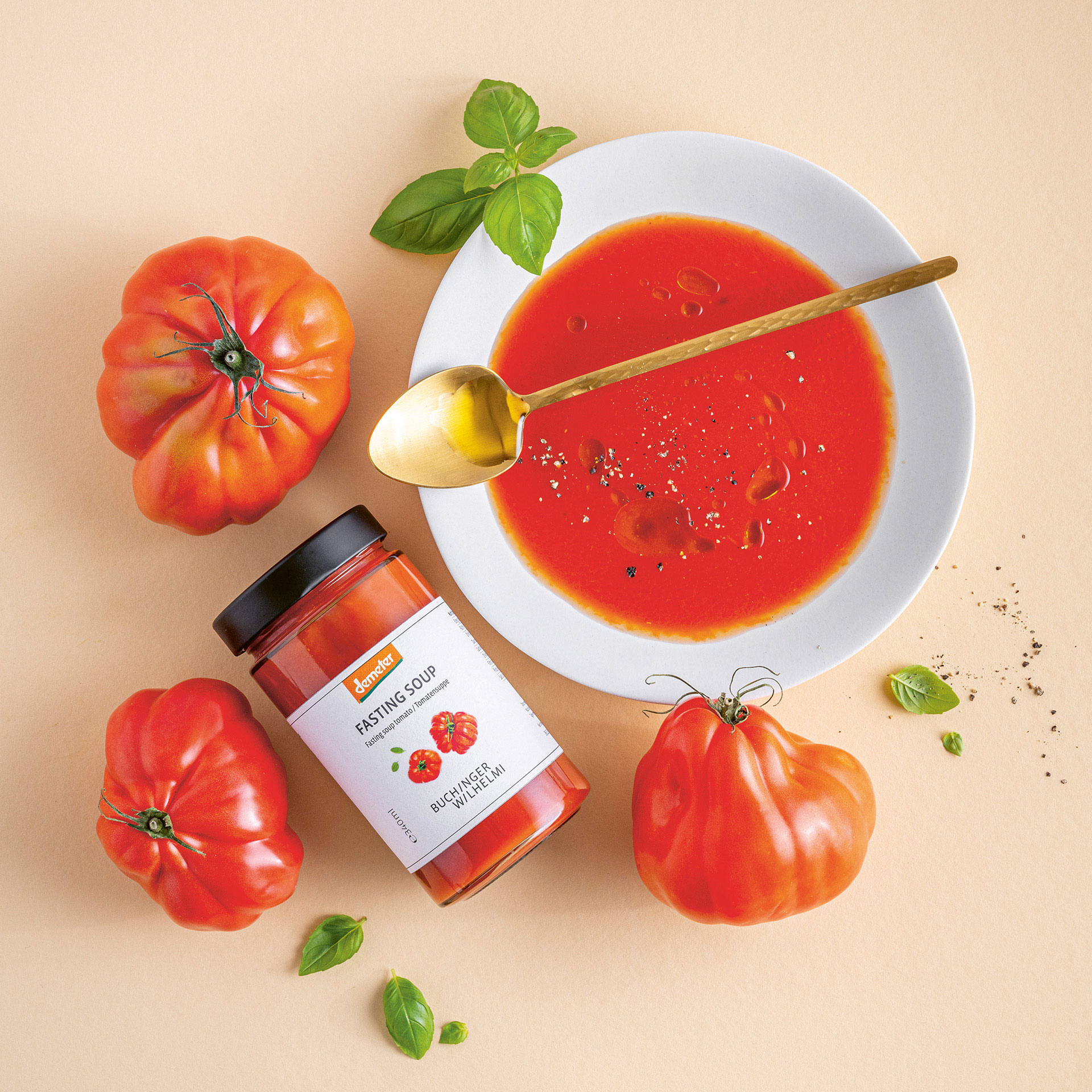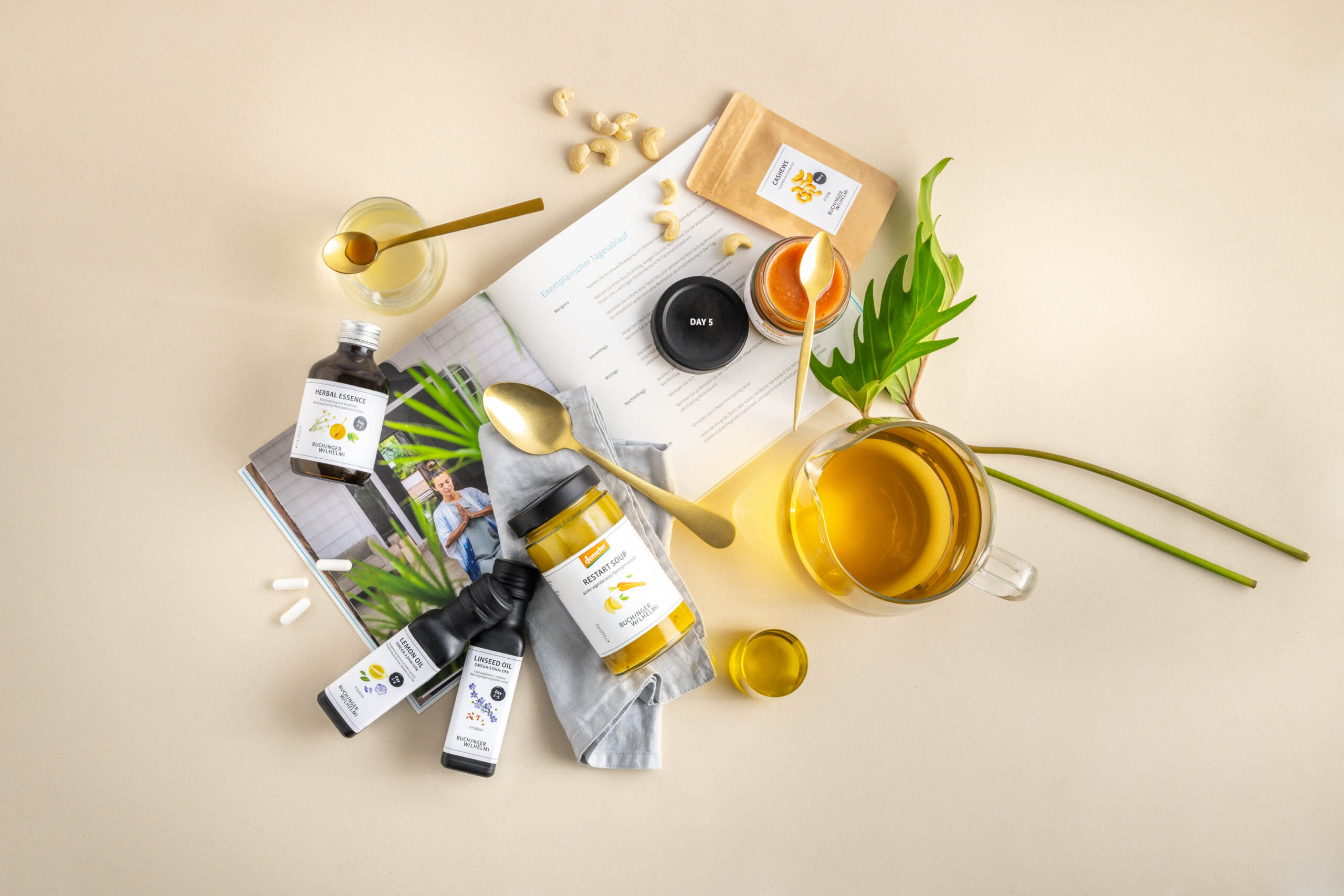A SCIENTIFIC ASSESSMENT
New remote interventions
in healthcare
STANDARDISING FASTING
Fasting-mimicking strategies
Living a longer, healthier life is increasingly important as populations age and chronic diseases like obesity and heart disease become more common. Scientists have discovered that fasting for a certain period of time has numerous health benefits.
Why fasting is natural
Humans and animals have always had to go without eating for longer periods due to a limited availability of food or changing seasons. Even though we no longer face the same challenges, research shows that limiting food intake can still be good for us. Fasting can take various forms, such as intermittent fasting for 16 to 48 hours, or fasting for longer periods of up to several weeks.
Although therapeutic fasting is not new, it has only recently become popular. This has led to the development of fasting-mimicking diets, or FMDs. These are programmes that provide pre-packaged meals in conveniently sized portions, and claim to simulate the effects of fasting without the difficulties associated with long-term fasting. FMDs offer some of the benefits of fasting, such as triggering certain changes in the body’s cells, while continuing to provide some calories. In the following sections, we discuss this topic in more detail.
Understanding fasting-mimicking diets (FMDs)
Defining fasting is no simple task, as it encompasses a wide range of practices and purposes. Traditionally, fasting has been understood as voluntarily abstaining from consuming food or beverages for a designated period. It is often rooted in religious customs, fulfilling a therapeutic purpose, or aligning with natural cycles. However, the scientific exploration of the potential health benefits of fasting by researchers and medical professionals has led to numerous definitions. Fasting-mimicking strategies add another layer of complexity to this.
FMDs were pioneered by Valter Longo, a renowned researcher in the field of aging and nutrition. He was presented with the Maria Buchinger Foundation Award for his work on “Fasting and Longevity” and “Fasting and Cancer” in 2013 at the international congress organised by the Medical Association of Fasting and Nutrition (ÄGHE e.V.) in cooperation with the Buchinger Wilhelmi clinics. Inspired by his studies on the health benefits of calorie restriction, Valter Longo developed a standardised dietary programme that mimics the effects of fasting while still providing essential nutrients.
The first FMD to be launched on the market is a five-day programme based on proprietary formulations of the University of Southern California and L-Nutra, the company founded by Valter Longo for this purpose.
> On day 1 it provides approx. 1,100 kcal from 11% protein, 46% fat & 43% carbohydrates
> On days 2 to 5 approx. 700 kcal from 9% protein, 44% fat & 47% carbohydrates
The programme quickly became a success and has been substantiated by scientific studies. Among the most notable are studies on mice showing that carrying out a four-day FMD every other month from middle age can extend life span, reduce tumours, lower inflammation, and improve memory in old age. In humans, completing a five-day FMD every three months can reduce markers for aging, diabetes, cancer, and heart disease like cholesterol, blood pressure, and glucose levels, especially in people who already have high levels of these markers.
FMDs have since become established as a remotely delivered intervention that replicates some of the effects of fasting. However, there is still room for improvement: FMDs consist of dehydrated meals which are ready to use abd are optimised for a long shelf life. In studies on FMD, compliance among participants is generally low because many of them dislike specific components of the FMD. Changing fasting-mimicking strategies to incorporate fresh foods could result in improved compliance. Our Buchinger Wilhelmi FASTING BOX is different in that regard.
The Buchinger Wilhelmi FASTING BOX
Our five-day programme is based on ready-made organic, plant-based meals, which provide an average of 623 kcal per day. They consist of:
> 09,8 g (06,2 %) protein
> 41,5 g (26,6 %) carbohydrates
> 44,7 g (64,7 %) fat
It includes soups, premium polyunsaturated fatty, acid-rich oils, chickpea puree, apple puree, honey, and cashew nuts. Each meal, meticulously crafted by our head chef and scientific team, is formulated to nourish both the body and mind.

The primary goal is to steadily decrease calorie intake while restricting carbohydrate consumption to under 50g per day. . Its composition helps to bring about ketosis, a metabolic state known for promoting cellular regeneration, which is one of the desired effects of fasting.

> Fresh ingredients in organic quality
> Completely without artificial shakes or bars
> A healthy and enriching fasting experience
Care was also taken to ensure that hardly any chewing is required during the five-day programme to avoid stimulating salivation and the associated digestive processes.

The FASTING BOX study
The effects of our FASTING BOX are currently investigated by our scientific team n a randomized controlled study. We are looking forward to sharing the findings with you soon, after they have been published. In the meantime, the following snapshot gives a glimpse of the effort involved in this research project:
- 64 participants
- 256 blood tests
- 1.269 tubes of blood stored in our biobank
- 768 measures of ketone bodies
- 11.776 blood parameter datapoints
- 14.863 answers to questionnaires
- 459.284 gut microbiota datapoints
Stay tuned, we will keep you updated!
Fasting-mimicking supplements
In addition to traditional fasting approaches, researchers have been investigating fasting-mimicking compounds, also called caloric restriction mimickings, as alternative ways to harness the health benefits of fasting. These compounds that are found naturally in certain foods or synthesized in laboratories mimic the physiological effects of fasting at a molecular level by activating autophagy.
Examples of fasting-mimicking compounds include:
- resveratrol that is present in red wine and grapes
- quercetin that is abundant in fruits and vegetables
- spermidine, a key component of wheat germs
- rapamycin, the best-known caloric restriction mimicking, which was initially found in a soil sample from Easter Island
While fasting-mimicking compounds show promise in activating molecular mechanisms in laboratory studies, there is reason to doubt that they have the same physiological effects as fasting. Proper fasting involves a complex interplay of metabolic and cellular processes triggered by the absence of nutrients and relieving the digestive system. Fasting also induces changes in hormone levels and gene expression patterns that contribute to its therapeutic effects.
Initially, rapamycin was considered a potential antifungal antibiotic. Later, it was found that rapamycin also has immunosuppressive effects and extended the lifespan of laboratory animals. However, scientific studies show that even the most powerful caloric restriction mimicking compound, rapamycin, does not fully reproduce the effects of calorie restriction. Using these supplements might even have adverse effects in the long term. For instance, while fasting is known to reverse type 2 diabetes by promoting tolerance to glucose, in some studies rapamycin even impaired glucose tolerance.
Another notorious case involves resveratrol, a natural compound found in red grapes, berries and wine, which has garnered attention for its potential anti-aging properties after it caused a stir in the media. However, while studies on worms and fish have shown promising results, with resveratrol extending their lifespan and improving their health, its effects in mammals have been less consistent. Unfortunately, the results from a study showing that resveratrol increased the activity of sirtuins, which are proteins involved in the regulation of aging, in a test tube and extended the lifespan of yeast could not be replicated by laboratories in the United States and England. Despite this, companies that sell supplements using resveratrol continue to make claims about its effects on longevity which are not backed by scientific evidence.
While fasting-mimicking compounds may be lucrative for the pharmaceutical industry, there is a compelling alternative: fasting. It enhances our healthy lifespan without the use of drugs and is kinder to the environment and natural resources.
Answering the need for standardised remote interventions
Treatments that can be administered remotely, like the Buchinger Wilhelmi FASTING BOX, have the potential to reduce medical expenses by cutting back the time people spend in hospital. They also make these therapies available to more people, regardless of where they live or how busy clinical setting needed. Such remote interventions also provide access to therapies for more people, regardless of their location and time availability. Additionally, they can be better integrated into everyday life, reducing the duration of inpatient treatments. The importance of such remote intervention options became apparent during the COVID-19 pandemic when many people had to stay at home for their own safety.
Given the alarming rise in cases of type 2 diabetes, which threatens to reach pandemic proportions, effective countermeasures are urgently needed. Fasting has proven to be an effective strategy to combat the causes of type 2 diabetes and can even reverse the development of type 2 diabetes. Remote intervention measures such as the FASTENBOX represent a promising approach to reaching and treating a large number of patients.
However, it is important that the focus should not only be on fasting. Educating people to learn healthy eating habits, recognise the physical cues of hunger and satiety, and enjoy nutritious food is essential. This is where the FASTING BOX comes into play. Emphasizing the importance of high-quality, nutrient-rich foods not only complements fasting but may also enhance its efficacy.
Another advantage is that fasting-mimicking diets like the FASTING BOX can be done more frequently, which amplifies their therapeutic effect. Depending on your personal goals, we recommend repeating the programme every two to six months (providing you meet the criteria for using the FASTING BOX). By combining fasting with education and access to nourishing foods, we can develop a comprehensive approach to leverage the potential of these new diet programmes and promote overall health and well-being..
You are currently viewing a placeholder content from YouTube. To access the actual content, click the button below. Please note that doing so will share data with third-party providers.
More InformationTHE ORIGINAL OF BUCHINGER WILHELMI
Get your timeout for your home.
More about the Buchinger Wilhelmi FASTING BOX